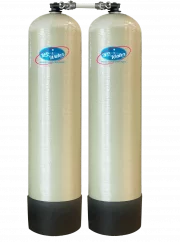Persistent Threat:
PFAS Contamination in Wisconsin’s Drinking Water
Wisconsin, known for its pristine landscapes and natural beauty, is facing a hidden adversary – PFAS contamination in its drinking water. Per- and polyfluoroalkyl substances, commonly known as PFAS, have emerged as a widespread concern, casting a shadow over the state’s water resources and posing potential risks to human health.
The Scope of PFAS Contamination in Wisconsin

Wisconsin, like many other states, grapples with the unfolding discovery of PFAS compounds in its water sources. These toxic substances often find their way into the water supply through various channels, including industrial discharges, agricultural runoff, and the use of firefighting foams. The state’s numerous lakes, rivers, and aquifers are susceptible to contamination, necessitating a closer examination of the potential consequences for both urban and rural communities.
Health Impacts on Residents
The health implications of PFAS exposure are a growing concern for Wisconsinites. Studies have linked these persistent chemicals to adverse health effects, including developmental issues, immune system suppression, and an increased risk of certain cancers. As PFAS-contaminated water sources become more prevalent, it is crucial to understand the potential risks faced by individuals consuming water from affected areas.
Private Well Owners: Guardians of Water Quality
In Wisconsin, approximately 30% of the population relies on private wells for their water supply within their home or business. This unique situation places a significant responsibility on individual well owners to monitor and maintain the quality of their water.
Unlike those connected to municipal water systems, private well owners must take proactive measures to ensure the absence of contaminants, including PFAS, in their drinking water. While maximum contaminant levels (mcl) are established for various contaminants, they are not enforced for private wells. Owners are responsible for testing and safety of their water.
Remember that while private well owners are not obligated to treat their wells for PFAS, the availability of grants and ongoing monitoring efforts can help address any contamination issues effectively. If you suspect PFAS in your well, consider testing and exploring treatment options to ensure safe drinking water for your household.
Well Compensation Grant Program
If a private well owner discovers that their well is impacted by PFAS at levels exceeding DHS health recommendations, they may be eligible for grants through theWell Compensation Grant Program.These grants can help cover the cost of installing a new well or a water treatment system.
Addressing PFAS Contamination: U.S. Water’s Role
 U.S. Water takes a proactive stance in combating PFAS contamination with the introduction of PFAS Shield™, a groundbreaking point-of-entry filter system that has earned the distinction of being the first in Wisconsin to receive state certification by the Wisconsin Department of Safety and Professional Services (DSPS).
U.S. Water takes a proactive stance in combating PFAS contamination with the introduction of PFAS Shield™, a groundbreaking point-of-entry filter system that has earned the distinction of being the first in Wisconsin to receive state certification by the Wisconsin Department of Safety and Professional Services (DSPS).
The PFAS Shield operates on state-of-the-art technology, setting a new standard for water filtration in Wisconsin. This innovative system reflects our unwavering commitment to delivering cutting-edge solutions that guarantee clean, quality water throughout your entire home or business.
LEARN MORE ABOUT PFAS SHIELD
By introducing PFAS Shield, U.S. Water empowers homeowners to take control of their water quality, offering a powerful defense against PFAS contamination and contributing to a healthier and safer water supply for families across Wisconsin.
Building on a Reputation for Advanced Water Treatment

This new treatment development builds on U.S. Water’s previous success in treating PFAS Recognizing the urgency of the situation, U.S. Water has also taken a leading role in offering an advanced filter solution for PFAS treatment at the point of use. One such solution is their under-sink Quick Change™reverse osmosis filtration systems. These systems provide a practical and efficient means of removing PFAS compounds from drinking water, safeguarding the health of individuals and families who rely on private wells for their water needs.
Conclusion
The issue of PFAS contamination in Wisconsin’s drinking water underscores the critical need for awareness, action, and responsible water management. As residents grapple with the potential health risks associated with PFAS exposure, private well owners play a pivotal role in maintaining the integrity of their water supply. Through strategic initiatives and technological advancements, such as those offered by U.S. Water, it is possible to mitigate the impact of PFAS contamination and pave the way for a healthier, more secure water future for all Wisconsinites.
About U.S. Water
U.S. Water is a leading provider of water testing and treatment solutions, delivering innovative and sustainable solutions to customers across various industries. U.S. Water maintains the only privately held, on-siteState and CDC ELITE Certified Water Testing Labin Wisconsin. With a commitment to water quality and environmental stewardship, U.S. Water continues to push the boundaries of water treatment technology.
U.S. Water’s exclusive new PFAS Shield system is scalable to effectively treat your entire home or business, regardless of water flow or PFAS concentration levels.



